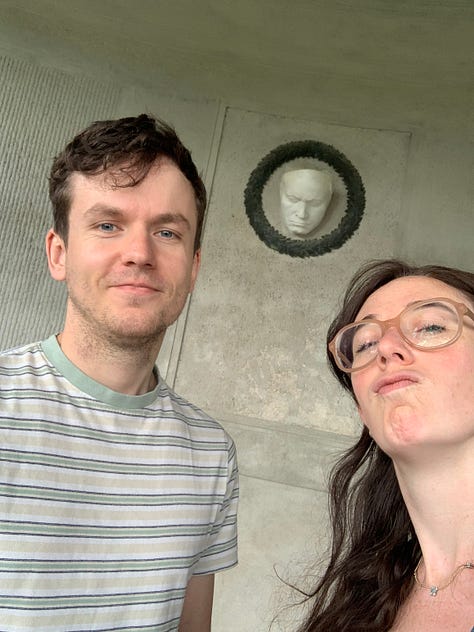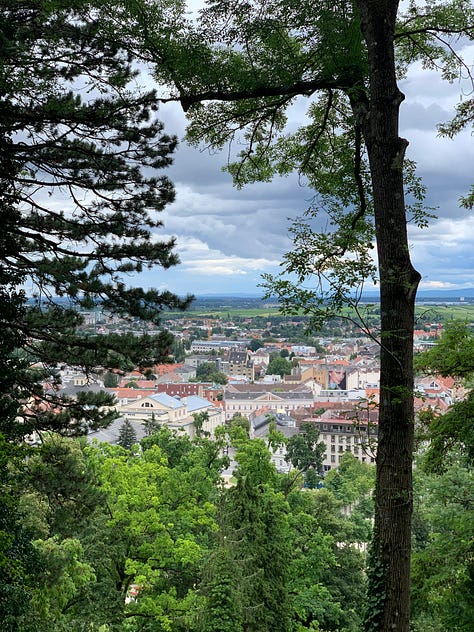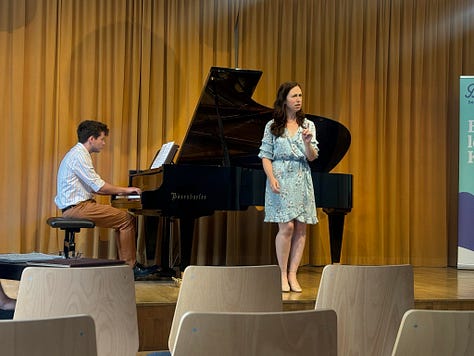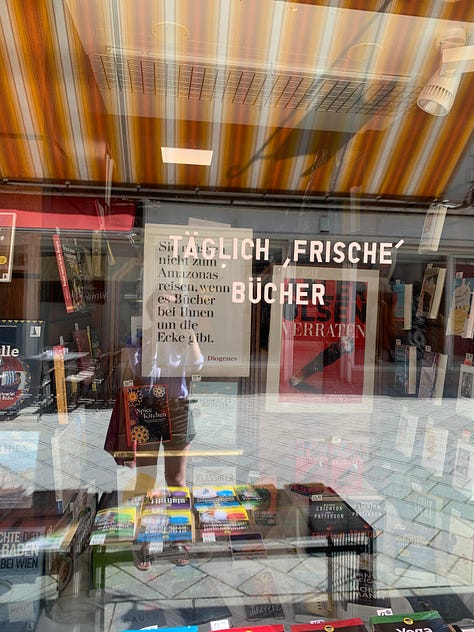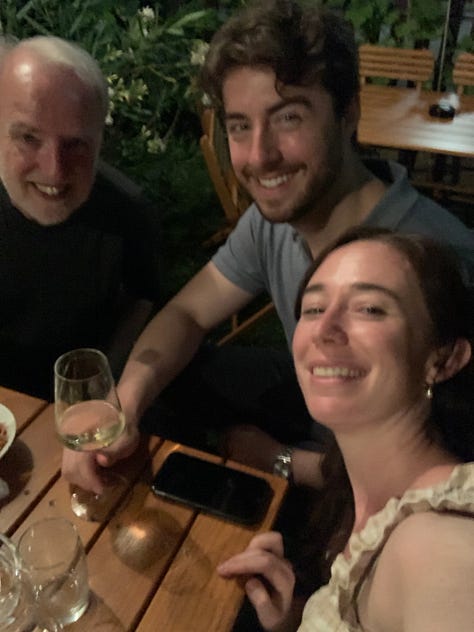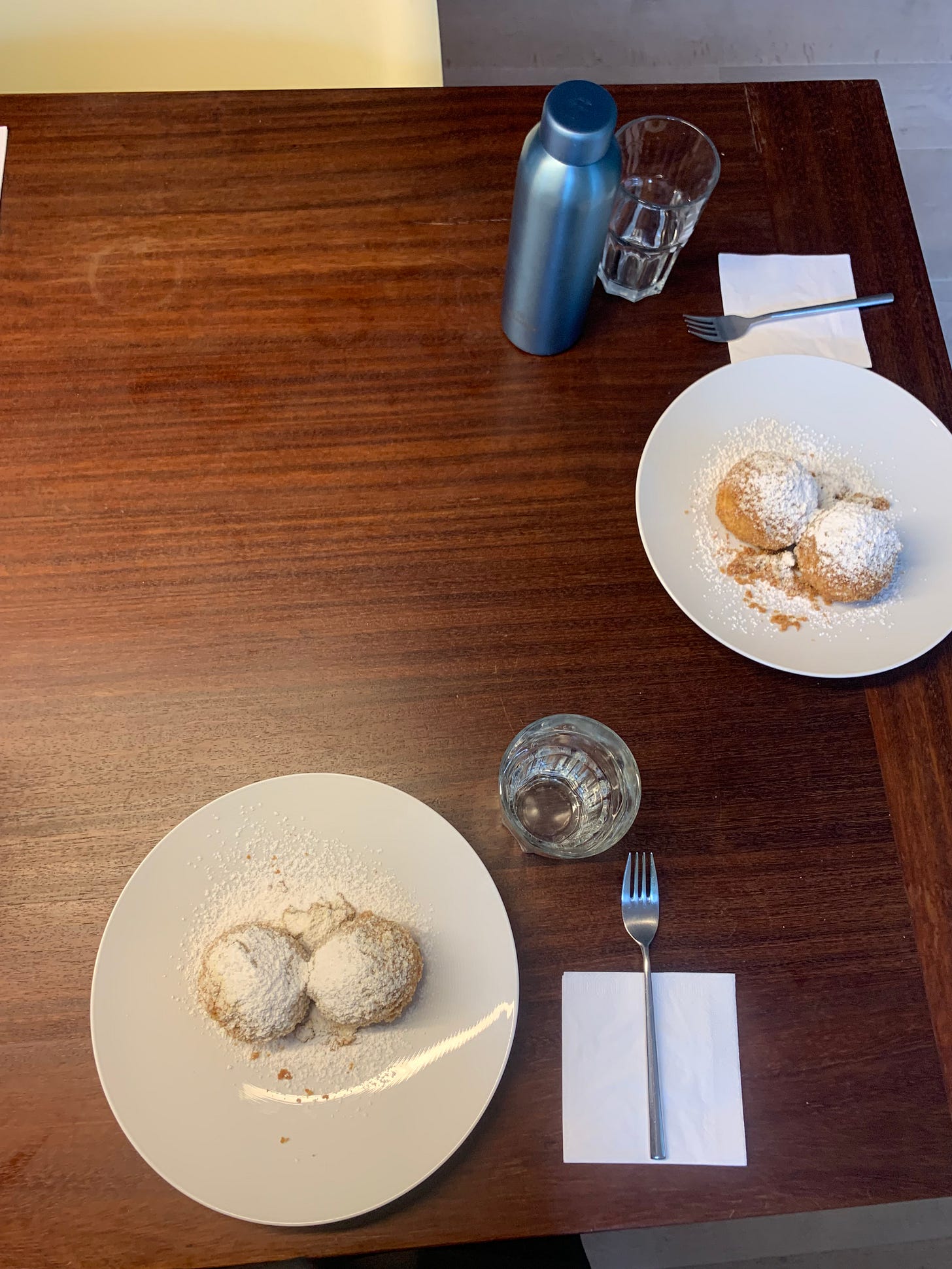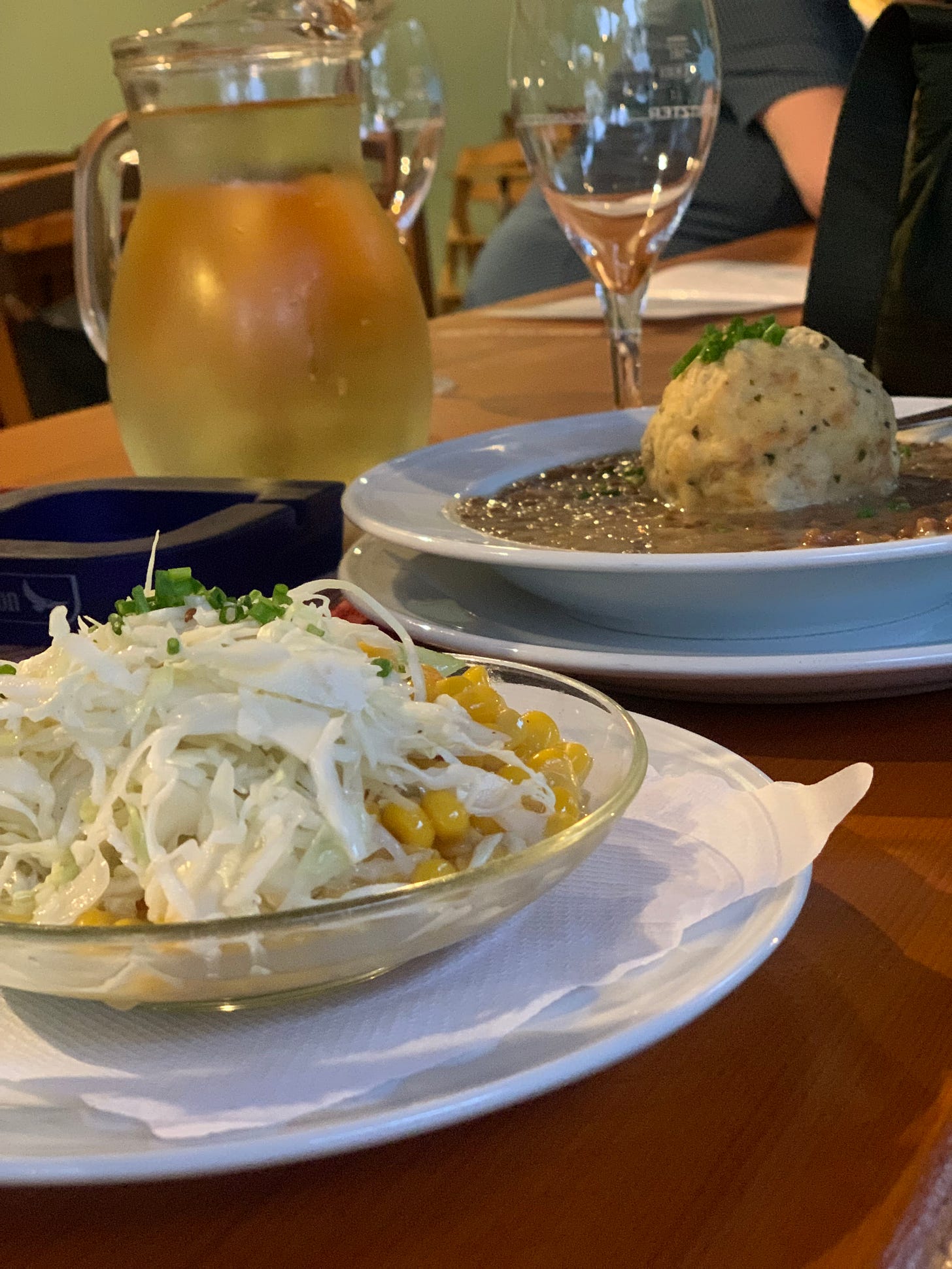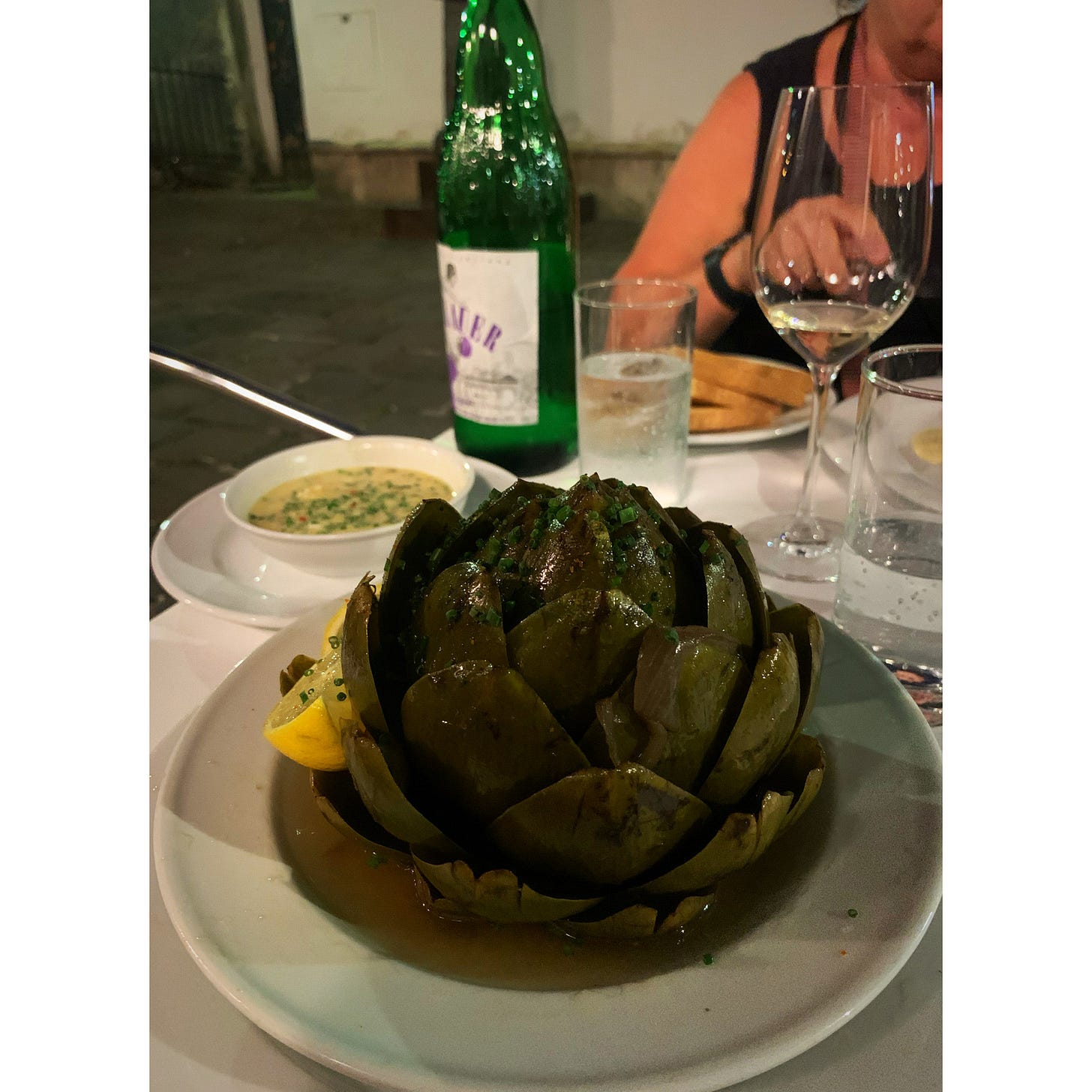Hier hinter den Myrtenbäumen Here beyond the myrtle trees In heimlich dämmernder Pracht, In secret twilit splendour, Was sprichst du wirr, wie in Träumen, What are you saying, fantastic night, Zu mir, phantastische Nacht? Obscurely, as in a dream? - Eichendorff
Guten Morgen, books & breakfasters! First morning off in a couple of weeks means time for a little update on my adventures in Baden bei Wien.
Baden (meaning Baths) is an affluent suburb of Vienna that was a popular vacation spot due to its situation on a thermal spring. Mozart’s beloved wife, Konstanze Weber, came here to recover from illness in 1791, at which point Mozart visited and composed his gorgeous Ave Verum Corpus. Beethoven also enjoyed summer vacations here and composed his ninth symphony while in Baden in 1824 (happy 200th!). The city took on a darker history during WWII, when some Jewish villas were entartet by the Nazis (and in which some descendants of those Nazis/Nazi-favoured composers still live and are commemorated with annual music competitions… but that’s another story!). Regardless of all that, I’m staying in a gorgeous house with two lovely hosts filled with modern art, a pond, an enviable library, and roses for days.
My days are mostly spent from 9am-9pm at the Franz Schubert Institut, studying German poetry, performing 27 German lieder in masterclasses, and rehearsing and memorizing and squeezing in almost daily trips to wine gardens or Heurigen in the evenings. Heurigers are local wine gardens open for a few weeks at a time in the summer. Fresh wine (mostly Grüner Veltliner and Gemischter Satz) is served in pitchers alongside soda water (it’s recommended that you “spritz” the wine 50/50 with soda water, otherwise thirst from the heat + strong fresh wine can have disastrous consequences…. 😱), which is eaten with typical Austrian snacks of open-faced sandwiches on yummy Roggenbrot, Sauerkraut, or, at some that serve hot food, Schnitzel or Knödel dumplings (my favourite…).
I’ve had two lovely host families during my stay here and both have made me the traditional Austrian dish Marillenknödel. An unexpected dinner for someone coming from Canada, the dish consists of apricots (Marillen) rolled in dough and lightly simmered over a stove, served with powdered sugar and butter. I’m also a big fan of savory Knödel - last night I had one in a pile of lentils at the Heuriger and was oh so happy (they’re also really good with Eierschwammerln - Austria’s prized mushrooms that look like little eggs).
Knödel gallery:
Anyway, my hosts tell me the secret to making good Apricot Knödel is the type of cream or Quark one uses, so that’s something to keep in mind if you’re going to try at home!!!
This is unintentionally turning into a food blog about my time in Austria, so I can’t finish this post without describing the beautiful artichoke I had with my mum’s cousin this week on an unexpected visit with him in Vienna. My mum’s cousin is an extremely well-regarded artist/filmmaker/opera director/theatre director/too many titles and had a performance of his new chamber opera in Vienna’s Burgtheater that I found out about on a few hours’ notice. He soon had a ticket for me in a very fancy box in the historic theatre on the Ringstraße where I was given sparkling water and a paper fan. We then went out for dinner with his production team in an old Viennese square before he flew back to South Africa the next morning. Both he and I ordered the most glorious artichoke I’ve ever had as a starter.
The best part of seeing my mum’s cousin is discussing our shared interest in lieder and opera. The program I’m in focuses on developing the utmost respect and understanding of the German poetry that inspired the lieder composers we’re performing. However, William introduced me to other perspectives, including the philosopher Roland Barthes’s critique on Fischer-Dieskau’s overly intellectual style of performing lieder in his article “The Grain of the Voice” (pdf here), as well as the Hasidic belief that text is for G-d, and what matters to us on earth is the space between the words ie. music (he joked he realized he’d been a Hasid all along…). And certainly some lieder composers, such as Richard Strauss, did not always choose the world’s most revered poetry (one of the master class technicians we’ve had here encouraged me to change some pronouns in the text of one of my songs, given that it wasn’t Goethe or anything too hallowed and I could therefore get away with personalizing it a bit…!).
(My pianist Alex Shafirov and I coaching the aforementioned piece by Strauss with Helmut Deutsch.)
Here’s William giving a talk on lieder at the University of Chicago, as well as a bit of the Winterreise by Schubert he did with Matthias Goerne ten years ago….
And a few more pictures. :) Bis nächsten mal.
